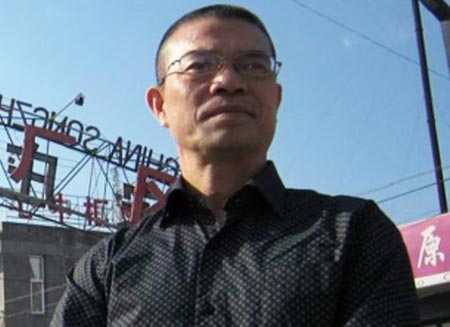China Is Risking the Lives of Political Prisoners by Denying Them Medical Care
September 11, 2017

By Frances Eve, CHRD Researcher
Originally published by ChinaFile on August 28, 2017
Dissident activist Chen Xi entered Xingyi Prison in Guangxi in January 2012 to serve a 10-year sentence. The previous month, he had been convicted of “inciting subversion of state power” for writing articles about human rights and democracy. This wasn’t Chen’s first time in jail. He’d already spent a total of 13 years in prison, including three for participating in the 1989 pro-democracy movement. So to some extent, he was prepared for what lay ahead. But this prison term would be different.
Within a month, he had contracted frostbite on his hands after prison guards refused to give him warm clothes and blankets during the unusually cold winter. After two years, Chen began to suffer from chronic enteritis, a treatable inflammation of the digestive tract normally caused by contaminated food or drink. But Chen didn’t receive treatment. In December 2013 he began to have frequent bouts of severe diarrhea. When his wife visited him in mid-2014, he was extremely weak due to dehydration and fever, had lost a considerable amount of weight, and was in a poor mental state. By December of that year, Chen was psychologically distressed. By then, he had been suffering from untreated diarrhea for a year and had been repeatedly placed in solitary confinement. The prison has refused to grant him medical parole and reportedly told Chen’s wife it never would, despite its inability or unwillingness to treat him.
Disturbingly, Chen’s case is not an outlier. Dozens of political detainees and prisoners have reported being deprived of adequate medical treatment. These cases raise the question of what kind of treatment Nobel Peace Prize Laureate Liu Xiaobo received before his death in July 2017 due to complications from liver cancer. Chinese security agents and propaganda officials went into overdrive before and after his death, attempting to paint a picture that Liu received the best available medical care. However, during Liu’s seven years at Jinzhou Prison in Liaoning Province, authorities knew that Liu had hepatitis B, a disease that put him at greater risk for liver cancer. Yet, Liu’s cancer was so advanced when he was granted medical parole and moved to a hospital that no surgery, chemotherapy, or radiation therapy could be performed, according to his wife, the poet Liu Xia.
[…]
Click here to read the rest of the article on ChinaFile’s website
China Is Risking the Lives of Political Prisoners by Denying Them Medical Care
September 11, 2017 Comments Off on China Is Risking the Lives of Political Prisoners by Denying Them Medical CareBy Frances Eve, CHRD Researcher
Originally published by ChinaFile on August 28, 2017
Dissident activist Chen Xi entered Xingyi Prison in Guangxi in January 2012 to serve a 10-year sentence. The previous month, he had been convicted of “inciting subversion of state power” for writing articles about human rights and democracy. This wasn’t Chen’s first time in jail. He’d already spent a total of 13 years in prison, including three for participating in the 1989 pro-democracy movement. So to some extent, he was prepared for what lay ahead. But this prison term would be different.
Within a month, he had contracted frostbite on his hands after prison guards refused to give him warm clothes and blankets during the unusually cold winter. After two years, Chen began to suffer from chronic enteritis, a treatable inflammation of the digestive tract normally caused by contaminated food or drink. But Chen didn’t receive treatment. In December 2013 he began to have frequent bouts of severe diarrhea. When his wife visited him in mid-2014, he was extremely weak due to dehydration and fever, had lost a considerable amount of weight, and was in a poor mental state. By December of that year, Chen was psychologically distressed. By then, he had been suffering from untreated diarrhea for a year and had been repeatedly placed in solitary confinement. The prison has refused to grant him medical parole and reportedly told Chen’s wife it never would, despite its inability or unwillingness to treat him.
Disturbingly, Chen’s case is not an outlier. Dozens of political detainees and prisoners have reported being deprived of adequate medical treatment. These cases raise the question of what kind of treatment Nobel Peace Prize Laureate Liu Xiaobo received before his death in July 2017 due to complications from liver cancer. Chinese security agents and propaganda officials went into overdrive before and after his death, attempting to paint a picture that Liu received the best available medical care. However, during Liu’s seven years at Jinzhou Prison in Liaoning Province, authorities knew that Liu had hepatitis B, a disease that put him at greater risk for liver cancer. Yet, Liu’s cancer was so advanced when he was granted medical parole and moved to a hospital that no surgery, chemotherapy, or radiation therapy could be performed, according to his wife, the poet Liu Xia.
[…]
Click here to read the rest of the article on ChinaFile’s website